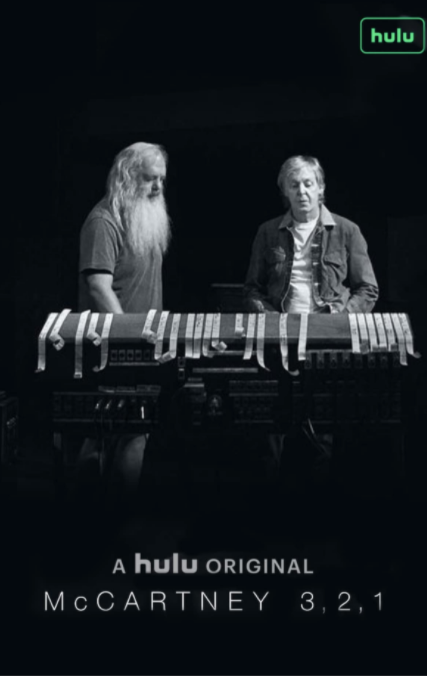
The first thing I want to tell you about McCartney 3, 2, 1 -- Rick Rubin's incandescent black-and-white three-hour six-episode interview with McCartney on Hulu -- is that in addition to being mind blowing and musically joyful, it made me very sad.
Not just because John and George should by all rights still be with us. But because Paul says at some point that since the Beatles are finished, their work now complete, he's become a fan of the Beatles, and much better able to appreciate their music which includes his songs, his voice, his bass, his ideas for arrangements, and much more.
And I don't want the Beatles to be finished. I want them to go on forever making that uniquely wonderful and always evolving music. And though I know that's impossible, I don't care. The pleasure that the Beatles brought to me and so many millions and millions of people was and is magical. Including "Free As A Bird" and "It's Real Love," recorded after Lennon was gone, and which weren't in this documentary and I missed. But if magic is involved, anything is possible, isn't it?
The conversation, though, was one for the ages, and my guess is it will be watched and listened to and carefully analyzed for thousands of years. A lot of it I already knew, like how McCartney arrived at Lennon's house with an essentially complete "Here, There, and Everywhere," which may be McCartney's favorite Beatles song. And a lot of it I didn't, like how Lennon really liked "Here, There, and Everywhere," and how pleased McCartney was when Lennon told him so.
Just hearing the tracks of the songs that Rubin played and played with, as a beckoning of McCartney's remembrances and explanations, were of deepest pleasure to the ear, the heart, and soul. As some of you may know, ever since The Village Voice published my "A Vote for McCartney" in 1971 -- my defense of McCartney's solo albums, after he left the Beatles, in the face of the Voice's dyspeptic critic Robert Christgau's attack -- McCartney has managed to be more to me than a member of the Beatles. That essay, after all, was my first published article. But seeing McCartney 3, 2, 1 brings home just how much this genius contributed to the Beatles, and how he strove to do that. I used to tell people in the 1970s that I thought the Beatles' music would live as long as Shakespeare's plays. I'd add now that Rubin's movie will be an important accompaniment to that body of music, more magnificent than ever.
No comments:
Post a Comment